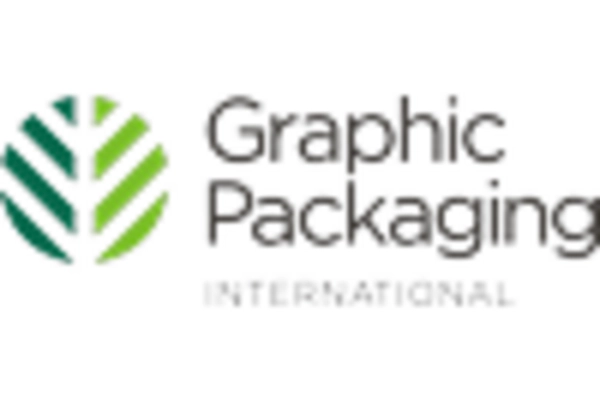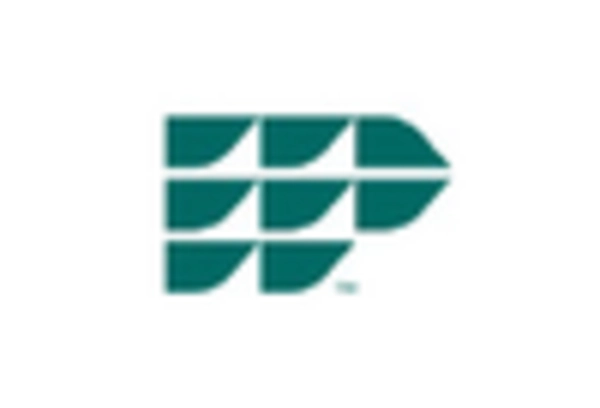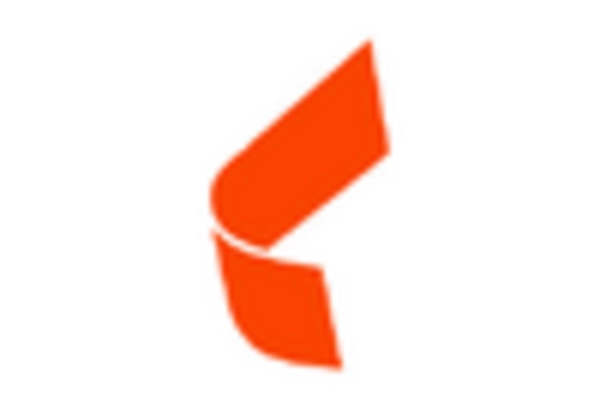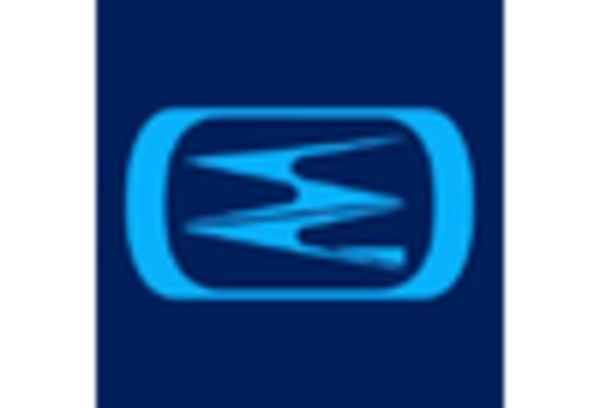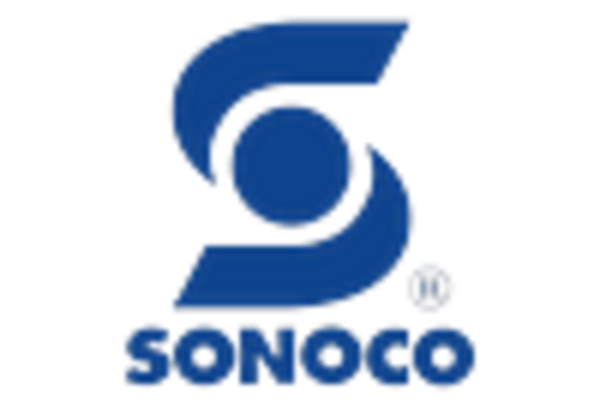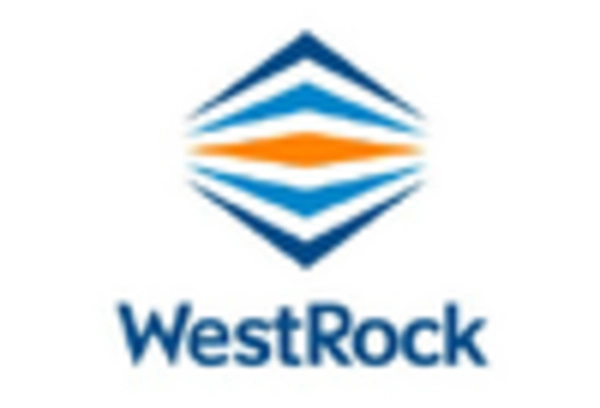Growth in the Food and Beverage Sector
The food and beverage sector in Germany significantly influences the folding cartons market. With a robust economy and changing consumer lifestyles, there is a growing preference for packaged food products. In 2025, the food and beverage industry is projected to contribute around 40% to the overall demand for folding cartons. This growth is driven by the increasing consumption of ready-to-eat meals and convenience foods, which require effective packaging solutions. The folding cartons market is adapting to these trends by offering designs that enhance product visibility and shelf appeal, thereby attracting consumers. As the sector continues to expand, the demand for innovative and functional packaging solutions is likely to rise.
Technological Innovations in Packaging
Technological advancements play a crucial role in shaping the folding cartons market in Germany. Innovations such as digital printing and automation are enhancing production efficiency and customization capabilities. In 2025, it is anticipated that the adoption of advanced printing technologies will increase by 25%, allowing manufacturers to produce high-quality graphics and designs on folding cartons. This trend not only improves aesthetic appeal but also enables brands to convey their messages more effectively. The folding cartons market is thus benefiting from these technological innovations, which facilitate shorter production runs and faster turnaround times, catering to the evolving needs of consumers and retailers alike.
Rising Demand for Eco-Friendly Packaging
The folding cartons market in Germany experiences a notable increase in demand for eco-friendly packaging solutions. As consumers become more environmentally conscious, brands are compelled to adopt sustainable practices. This shift is reflected in the market, where the use of recyclable and biodegradable materials is gaining traction. In 2025, it is estimated that eco-friendly packaging could account for approximately 30% of the total folding cartons market. Companies that prioritize sustainability not only enhance their brand image but also meet regulatory requirements, which are becoming increasingly stringent. The folding cartons market is thus witnessing a transformation driven by consumer preferences and legislative pressures, pushing manufacturers to innovate and invest in sustainable materials.
Regulatory Compliance and Safety Standards
The folding cartons market in Germany is significantly influenced by stringent regulatory compliance and safety standards. As consumer safety becomes a priority, manufacturers are required to adhere to various regulations regarding packaging materials and labeling. In 2025, it is expected that compliance costs could account for up to 15% of production expenses in the folding cartons market. This necessitates investment in quality assurance and testing processes to ensure that products meet safety requirements. Consequently, companies that prioritize compliance not only mitigate risks but also enhance their market reputation, thereby gaining a competitive edge in the folding cartons market.
Expansion of Retail and E-commerce Channels
The expansion of retail and e-commerce channels in Germany is a significant driver for the folding cartons market. As online shopping continues to grow, the demand for packaging that ensures product safety during transit is increasing. In 2025, e-commerce is projected to account for approximately 20% of total retail sales, leading to a heightened need for durable and visually appealing folding cartons. The folding cartons market is responding by developing packaging solutions that cater specifically to the requirements of online retailers, such as easy-to-open designs and protective features. This trend indicates a shift in consumer purchasing behavior, which is likely to persist, further driving the demand for innovative packaging solutions.



